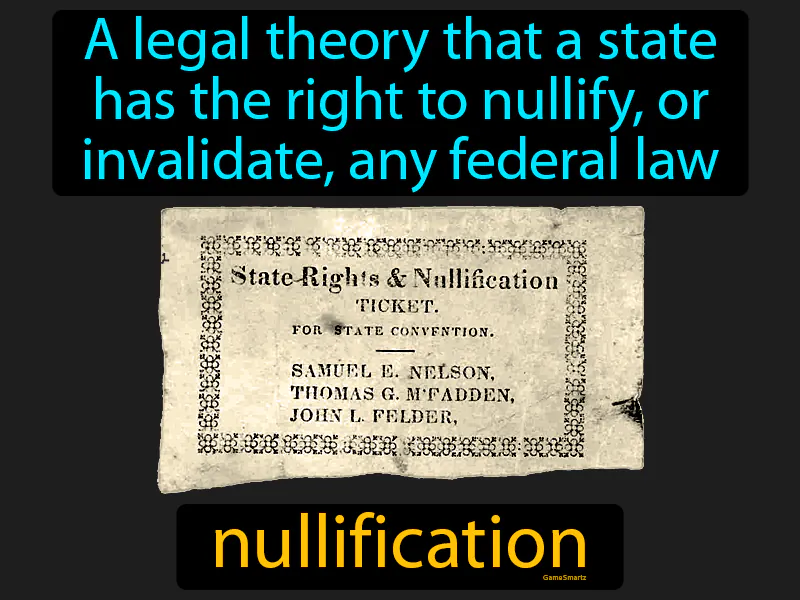Nullification
Nullification:
During the late 1700s, the concept of nullification emerged as a response to tensions between states and the federal government, particularly regarding the balance of power. States like Virginia and Kentucky argued they could nullify federal laws they deemed unconstitutional, as seen in their reaction to the Alien and Sedition Acts. This was important because it highlighted the struggle for power and rights between state and federal authorities, shaping the early debates on governance in the United States. Today, nullification still matters as it influences discussions about state rights versus federal laws, like debates over marijuana legalization where some states have laws that contradict federal regulations. This impacts people by showcasing how local and national laws can differ, affecting which rules apply to everyday activities like business operations or personal use.

Practice Version

Nullification: A legal theory that a state has the right to nullify, or invalidate, any federal law. Nullification. In U.S. history, nullification refers to the idea that states can reject federal laws they believe are unconstitutional.
